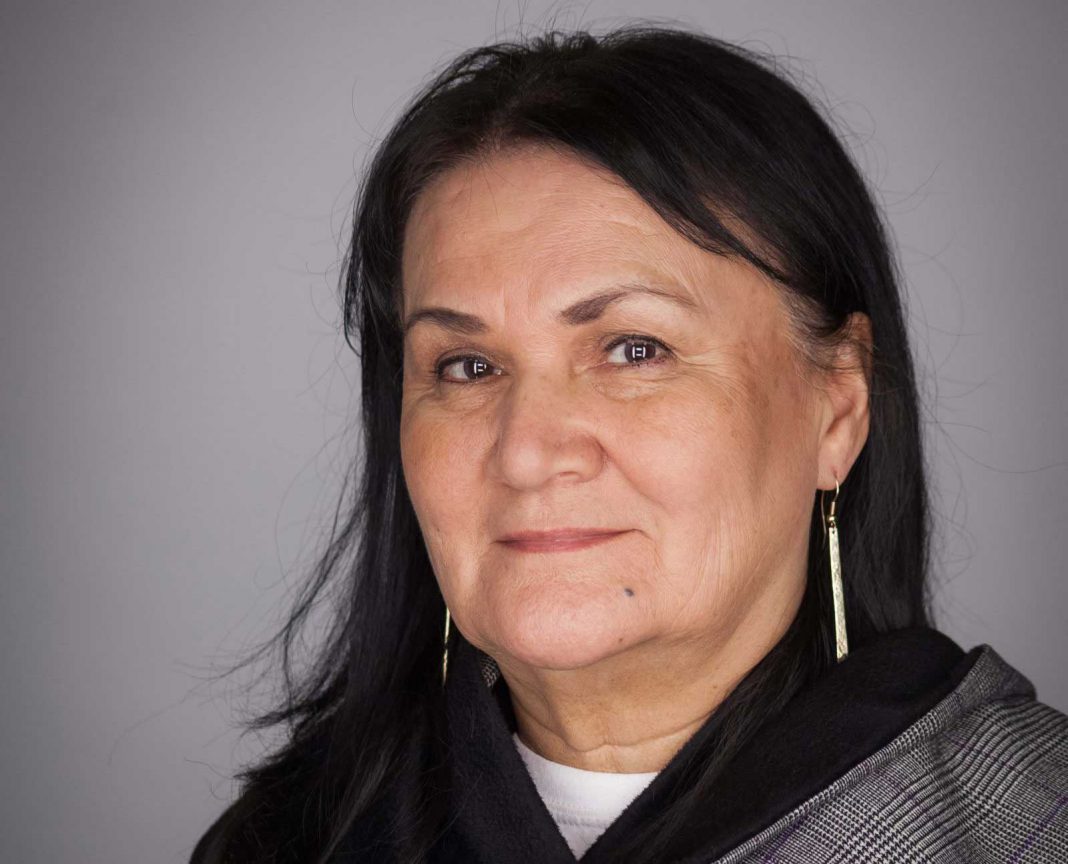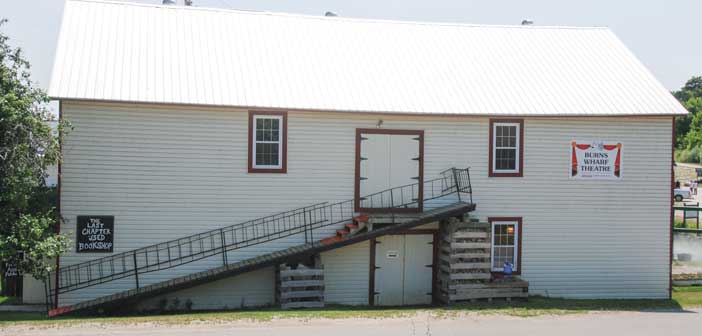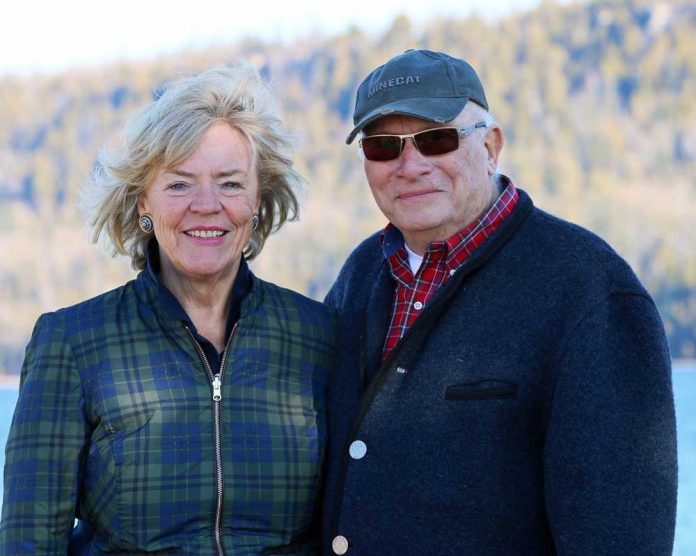Shirley Cheechoo’s contributions have enabled Indigenous artists’ careers
OTTAWA—Creative genius is a remarkable thing, but when that trait is combined in an individual with a passion for not only telling their own stories, but who is also directed towards helping others to find their own creative voices, that genius is elevated to the rarest of human beings—those we call heroes. Such a person is Shirley Cheechoo and it was with great delight that The Expositor learned of her inclusion in the 2019 list of those being installed as a Member of the Order of Canada. That information was embargoed until 6 am this morning (December 27).
“I didn’t think anyone knew and the only thing I could think of was, ‘did I leak this?’” laughed Ms. Cheechoo when contacted by The Expositor for comment. “It was shocking when they called me to tell me I will be receiving the Order of Canada. I didn’t know what to say, it was very foggy and a very moving moment and I think I said thank you many times over. I would like to thank the person who nominated me in person, but I don’t know who that is. Miigwetch, miigwetch. It’s absolutely a tremendous honour to be given the Order of Canada. I am so thankful for the work I get to do with young people and to be recognized for the work you do is a real commendation.”
“Shirley’s body of work is certainly deserving of this recognition,” said Algoma-Manitoulin-Kapuskasing MP Carol Hughes upon learning the news. “Her accomplishments in theatre, film—where she received many so many awards and as an artist, are remarkable. Her commitment to equity and respect for Indigenous people is unwavering which is why I am so glad she will be recognized in this way.”
“She has always been such a smart, intelligent lady and she has always worked so hard for the Anishinabe people to help them get their word out,” said Marjorie Trudeau, longtime president and now vice-president of the Debajehmujig Storytellers (aka Debajehmujig Theatre Group). “She is doing a really good job with her film school now too.” Ms. Trudeau noted that she was in attendance when Ms. Cheechoo was installed as the Chancellor of Brock University. “She had a wonderful speech. She is a really caring person.”
Ms. Cheechoo is actually Dr. Shirley Cheechoo as she was awarded an honourary doctorate by Laurentian University. Her husband, Blake Debassige who is also an artist in the Eastern Woodland style was also conferred with an honourary doctorate by Laurentian University the same year.
A comment made by Ms. Cheechoo in the early moments of her conversation with The Expositor about her being named to the Order of Canada offers a very telling window into Ms. Cheechoo’s character and demonstrates a key reason she is being honoured in 2019. “Maybe this will help let people know more about Weengushk (Film Institute, the latest arts organization she has founded in her long and storied career) and the work we do with young people,” she said. Her mind was immediately focused not on her own honour and how it might further her career and aspirations personally, but rather on how this might enable her to assist others with their own dreams—demonstrating without forethought or dissemble a rare and honest humility and passion for improving the lives of others.
Ms. Cheechoo is an actress, writer, producer, director and visual artist, who perhaps is best known for her solo play ‘Path With No Moccasins,’ as well as her work with Debajehmujig Storytellers, which she also founded 35 years ago. Ms. Cheechoo’s first “big” acting break came in 1985 when she was cast on the CBC’s First Nations TV series ‘Spirit Bay,’ and later, in 1997, when she secured a role on the CBC’s television series ‘The Rez.’
She was named chancellor of Brock University in July 2015, becoming not only that institution’s first female but also the first Indigenous person to fill that role.
Born in 1952 in Eastmain, Quebec, Ms. Cheechoo grew up in Moose Factory and Hearst. She spent her early life following the traplines in the bush with her parents and brothers, but by the age of nine she was sent to Shingwauk Residential School in Sault Ste. Marie (on the present location of Algoma University College). There she experienced violence and abuse that was to later inform much of her creative work. Ms. Cheechoo fought her way out of the trap of substance abuse in her early years and turned her life around, beginning her work in film and theatre that explored themes of healing and survivance post-trauma.
Her experiences at a residential school and her road to healing are documented in her 1991 stage play ‘Path with No Moccasins,’ which premiered on Manitoulin Island.
Ms. Cheechoo was one of the many young Indigenous students who attended art classes at the Manitou Arts Foundation during the summer of 1971 established by her own mentor Tom Peltier, after whom the Weengushk Film Institute’s studio space in M’Chigeeng is named.
Not only did Ms. Cheechoo found Debajehmujig, in its early years, she filled the roles of artistic director, president of the board of directors, and did much of the administrative work along with the roles of actor and playwright.
Ms. Cheechoo holds the distinction as being the first First Nations woman to “write, produce, direct, and act in a feature length film from Canada.”
As a mentor to many in the Indigenous arts community, and one of Canada’s most well-known and respected artists, Ms. Cheechoo visits communities and schools and holds workshops across Turtle Island.
“We must continue to fight in the most positive way to try and find a level playing field for Indigenous people to work, live and create in the main,” said Ms. Cheechoo.
In February 2008, Ms. Cheechoo was awarded a Lifetime Achievement Award in the area of art by the National Aboriginal Achievement Foundation. She was also awarded the Queen’s Diamond Jubilee Award in 2013 to recognize her commitment to education and has written the plays ‘Path With No Moccasins,’ ‘Tangled Sheets’ (1994) and ‘Your Dream Was Mine’ (2005). Her film credits include director and writer of ‘Johnny Tootall’ (2005); director of ‘In Shadow’ (2003), ‘Shadows in Deep Water,’ ‘Pikutiskaau (Mother Earth)’ (2003), producer and director of ‘Tracks in the Snow’ (2001), director and writer of ‘Backroads’ (aka ‘Bearwalker,’ 2000), ‘Silent Tears’ (1998) and ‘Moose River Crossing’ (2013).
Ms. Cheechoo also provided the illustrations for ‘Tales the Elders Told’ by Basil H. Johnston.
Her awards include: Best Short Film, ‘Silent Tears;’ 1998 Telefilm Canada/Television Northern Canada Award for Best Canadian Aboriginal Language Television Program, Best Director at Toronto’s 2000 Reel World Film Festival for ‘Silent Tears;’ A 2008 Lifetime Achievement Award in the area of art from the National Aboriginal Achievement Foundation (Indspire); a CTV Fellowship Award; Eagle Spirit Award; 2002 Independent Filmmaker of the Year at the Arizona International Film Festival; and 2005 Best Film for ‘Johnny Tootall’ at the 2005 American Indian Film Festival.
Ms. Cheechoo continues to work tirelessly to help Indigenous voices, particularly those of the youth, to be recognized and amplified beyond the borders of the First Nations and into the mainstream.





